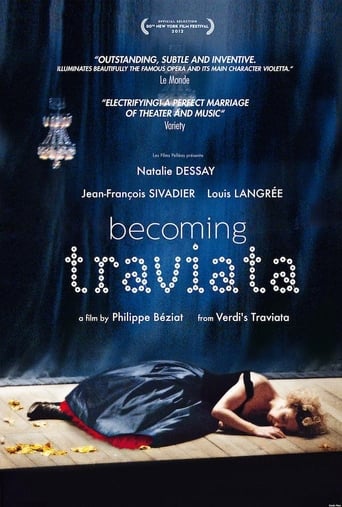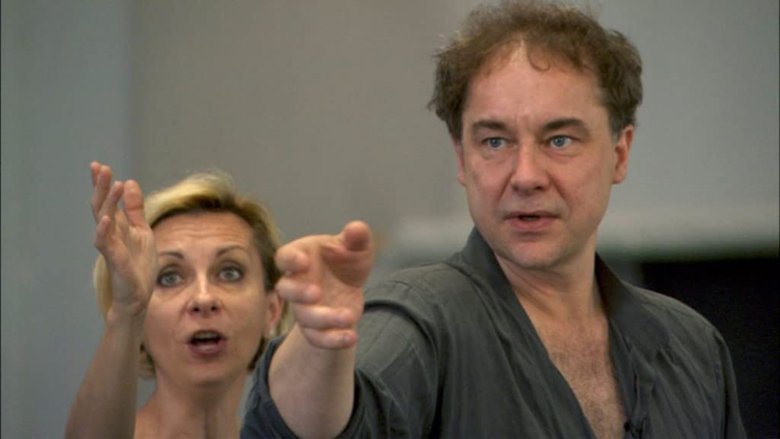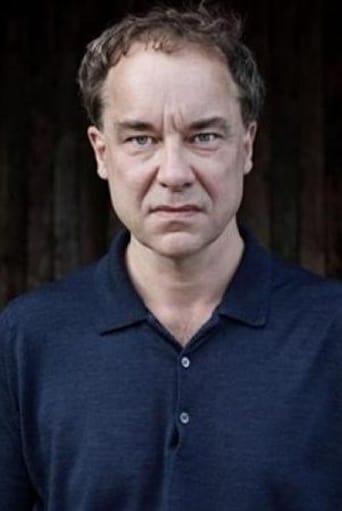How can emotion come to light on the opera set? Does it come from singing, acting or music? How can someone become the incarnation of Verdi's masterpiece? Following world famous French soprano Natalie Dessay from the first repetitions until the premiere under the direction of Jean-François Sivadier, we meet a very special woman, a piece of art, a myth: LA TRAVIATA.


Similar titles
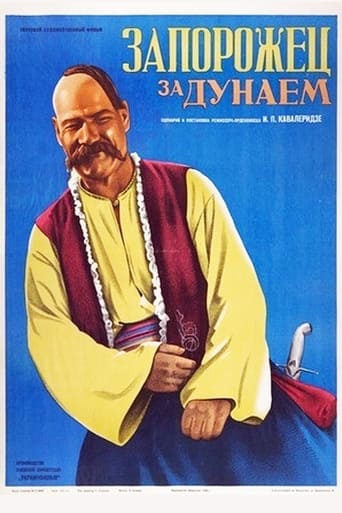
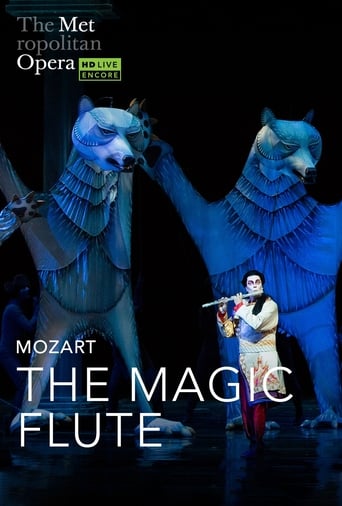
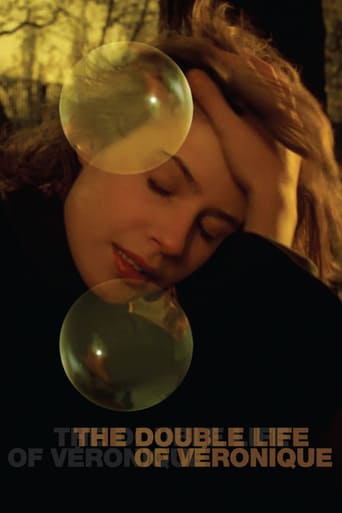

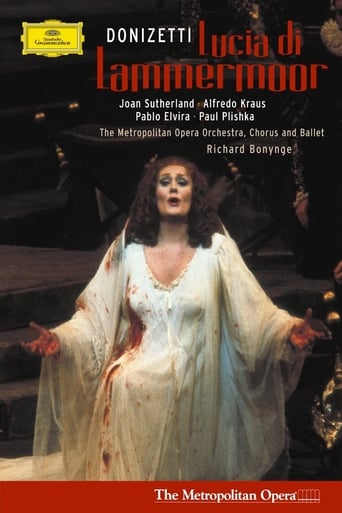
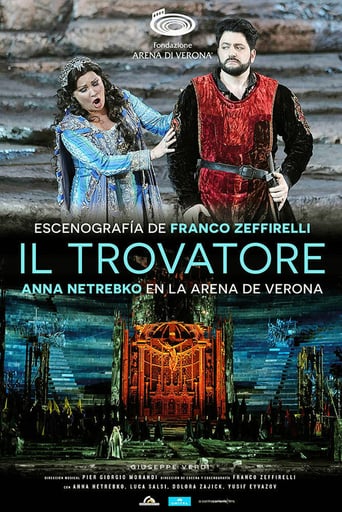


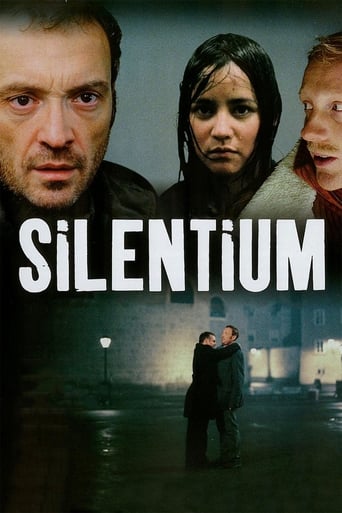
Reviews
Opera is turning itself off from monumental performances and into the same acting demands on singers, as we have for talking stages. Nathalie Dessai is an example of it. We here follow her rehearsing La Traviata. Face expressions and moves are almost as important as song qualities.The rehearsals nearly become a drama within the drama, although there are no high voices or choleric attitudes. Which makes this picture more touching than many of the performances you've seen in the opera houses.Another school, another Verdi view, another way of bringing music and acting together. Are the volume strong voices out? We'll know a couple of generations from now.
I came to this film not knowing much of La Traviata, nor of opera generally. I was expecting to learn something of both, and of the people involved.Barring that, I would have liked to see and hear the actual performance filmed in front of a live audience. It seems that is available, but not in this film.Unfortunately, I got less than half of those options.I learned next to nothing about any of the people on the stage, in the pit, or directing, despite this appearing to be a "behind the scenes" or "making of" sort of film.And although my guess is that the story of La Traviata is presented sequentially in the film, we're deprived of the actual performance itself, visually. Worse, the audio is often punctuated with direction and other comments; disgusted with the film, you can't even close your eyes to escape into the music. And sometimes, the audio and video are completely unrelated.Ultimately, this film is an ad for an event that you cannot attend, because it's over. But you can pay yet more money to get the DVD of that event.I feel like a moron having paid to see this.
Giuseppi Verdi's La Traviata is, without a doubt, an operatic masterpiece. As such, it sits comfortably at the top-tier of the operatic repertoire worldwide. Unquestionably top ten, if not top five or top three. It is a love tragedy of mythic proportions with all the right ingredients: a ravishingly seductive score; memorable tunes frequently sampled today; and a classically melodramatic tragic end. No wonder the work has often fascinated film directors in their desire to "fix" the creative process into film, warranting a longer shelf life than a live theatrical run. The Italian theatre and film director Mario Lanfranchi -- the first to bring opera to the small screen -- did a version in 1967. Franco Zeffirelli, of 1968's Romeo and Juliet fame -- directed another version in 1983 with Teresa Stratas and Plácido Domingo. Now comes a scaled-down version from Jean-François Sivadier, a theatre and opera director and an actor himself. This one stars the world- renown coloratura soprano Natalie Dessay as Violetta and the American tenor Charles Castronovo as Alfredo. The production, commissioned for the International Festival of Lyric Art in Aix-en-Provence in 2011, was captured in its creation by the documentary director Philippe Béziat. The work is titled Becoming Traviata, and it is a joy to watch. It is literally, in situ, the creation of a master work, and we are witnesses to the give-and-take of the art of collaboration. The documentary film moves at the pace of the opera itself. There is the initial adjustment to the material, the identification of characters, a statement of the theatrical perspective for the Aix-en- Provence production. But before you know it, we are participants in Violetta's big Parisian party in Act I. And, of course, that famous toasting song (Brindisi). In his typical documentary style, Philippe Béziat keeps the camera close to the set, in the proximity of the stage. Only on two occasions are we taken out of this theatre-box setting. One was successful, as the artistic technicians discuss the details over an outdoor luncheon in a stereotypically Provencal setting. A sort of "Luncheon of the Boating Party" without the boat. Near the end, Béziat moves us out from the tense stage setting, where the camera wonders through the streets of Aix-en-Provence. At first, I thought we were entering the festival arena to witness the finished product. Not so. This was an unavoidable deficit. Nonetheless, the film highlights the strength of the performances of the Aix-en-Provence production. Maybe it is because Sivadier is an actor himself that he focuses so much on the physical and emotional expressions of his actors. Watching the film, I reached a new appreciation for the highly complex skills of these operatic artists: not only do they have to sing those complicated songs, they have to convey the emotions and move the narrative along with a twist of the torso, each lifted finger, that gentle hand slide along the face, or that rough thrust of currency to one's face as a sign of disgust and humiliation. No step, no gesture is wasted. Each one is choreographed to match the dramatic mood of Verdi's musical narrative. What a valentine to the job of a director. The cast is magnificent. Natalie Dessay's Violetta is mesmerizing in every scene and in every frame. She is both playful and deadly serious, always delivering the stellar performance demanded by Sivadier both musically and dramatically. She is simply spellbinding, even as we witness her repeated choreographed death fall as the credits run at the end. In contrast to the lush and ornamented score, Sivadier gives us minimal, yet effective, staging: a bare crystal chandelier; rolled panels of fabric depicting clouds or a field of flowers straight from Monet; a single red flower in a simple drinking glass. Spare so as not to distract from the music and the dramatic action. And when flourish is appropriate, Sivadier delivers it, and delivers it heavy: the make-up removal cold crème; gold leaf showering from the heavens; the tense gesture of a death collapse. And through it all, the creative process is fixed on film and on the soundtrack. Rehearsals are tweaked on film while we hear the finished work in the background. Perfection is reached before our very eyes. Like the final opera itself, we, the audience, are transformed by the journey. Like Dessay's Violetta, we too are molded by the skills of the artist. By Sivadier for La Traviata, and by Béziat in Becoming Traviata. As the titular meaning, Natalie Dessay is the classic "Fallen Woman/Traviata" and we, the viewer, have fallen along with her. Fallen in love.
It is refreshing to see an opera star of the stature of Natalie Dessay, preparing for the staging of one of Verdi's most famous operas, La Traviata. This French soprano is a joy to watch as she prepares to assume a role that has been a favorite of fans of this work. We watch the singer go through the preparation stage, responding to Jean-Francois Sivadier, the director, who at times, shows to be overbearing in the way he perceives the opera.The documentary, presently having a commercial run at Film Forum, brings the viewer into the process that ultimately will be seen on stage as the opera takes shape. We are given a tour of what really goes on during the creative process of this piece. The viewer is taken through all what goes into the production being prepared for an Aix-en-Provence presentation. The whole process comes alive in Philippe Beziat's direction, making this filmed account of the Verdi masterpiece an enjoyable experience.Highly recommended for lovers of opera.
